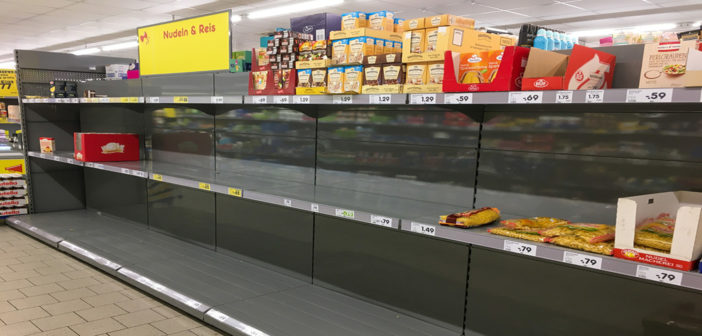That probably sounds like typical clickbait and hyperbole but allow me to try to change your mind a little bit. While it is true that China is coming back on-line in terms of manufacturing and Supply Chains, the impact of this cannot be measured in the short term only. The DJIA drop is a big deal and recessionary fears are real, but we cannot ignore some of the potential long-term structural changes. Those that do will definitely do so at their own peril. Regardless of why, this coronavirus has had an impact far beyond the quantifiable short term medical and financial ones. And our alumni know that it’s the non-quantifiable impacts that drive decisions and behaviors far more significantly than the quantifiable ones (hint: Stakeholder Value Drivers). To participate in this discussion, we will hold a webinar/podcast series on this topic in the immediate future so please stay tuned.
There perhaps has not been an event like this virus in a while and yet the argument is that this is not a Black Swan event!! And if that’s true, then this has been a spectacular Risk Management failure for the world?? And there is a strong argument to be made that the only difference between this and other very similar and recent viruses (SARS, MERS, H1N1, Ebola, etc.) is that this is a different strain. By thinking of this as a Black Swan event, one would have to argue that we need a different response mechanism for each virus which is illogical and insane. Which means that this was a Predictable and Inevitable event (another hint for the alumni). And if that’s the case, then we should be developing a solution even before it happens, or we will pay a humongous price for waiting till later to deal with – is that sadly beginning to sound familiar. Those countries that moved with alacrity even though they waited until after the event had occurred are reaping the benefits of it and hopefully, they will have a permanent solution in place. As an example, China was able to stand up fully functioning mobile hospitals in seven days and now have stood up a hospital staffed by robots to minimize human interaction. South Korea has drive-thru testing for the same purpose. However, the root cause of this event comes from unreliable and contaminated food supply chains for the Chinese population and until that is resolved, the jump of viruses from animals to humans will sadly continue.
This has and will have some REAL changes in a number of different areas that we need to be thinking about today because they will have an impact on Sourcing/Supply Chain functions in many, many ways. Here are some of those changes:
- Personal lives: Social distancing, shaking hands, how we cough, how we shop, use of disinfectants, use of cash, how/where we travel, etc. – All of these and more may become routine and not a reaction to current events. This may actually lead to fewer instances and deaths from influenza – yup, you read that right. Thousands less deaths by next flu season.
- Corporations: Travel policies may change permanently. Even local, remote work will become more of the norm.
- Supply Chains: Shift importance from TCO to Risk as a decision factor in Supply Chain decisions; Permanent de-coupling from China. More control over value creating process – less outsourcing.
- Global Disaster Response: Primarily dependent on effective “Response Supply Chains” and there is no global solution to that. Governments willing to invest in permanent military Supply Chains in case needed but not on these Supply Chains.
Join us for a lively debate and discussion and find out how others are approaching these issues. Getting ahead of them will provide you with enhanced credibility with your Stakeholders AND a competitive advantage over your competitors.

